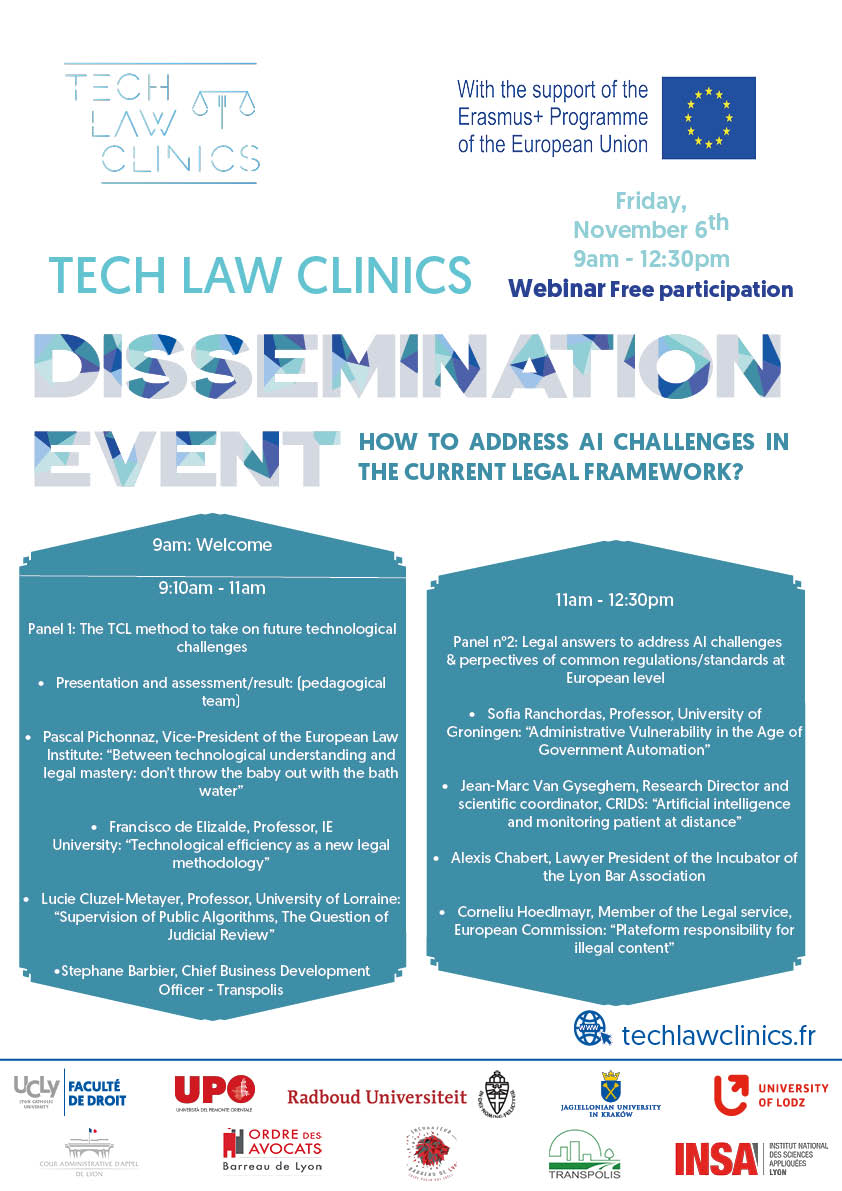Ask your question :
Pedagogical team
- Marjolaine MONOT-FOULETIER – Law Professor at UCLy – HDR
- Marc CLÉMENT – President of Chamber at the Administrative Court of Lyon
- Bianca GARDELLA TEDESCHI – Associate Professor – Universita Degli Studi Del Piemonte Orientale Amedeo Avogadro
- Monika NAMYSLOWSKA – Director of the Department of European Private Law – Uniwersytet Lodzki
- Piotr TERESZKIEWICZ – Associate Professor in Private Law – Uniwersytet Jagiellonski
- André JANSSEN – Full Professor – Radboud University
- Pietro ORTOLANI – Assistant professor – Radboud University
- Tom J. VENNMANNS– PhD Candidate – Radboud University
- Marie-Pierre ESCUDIÉ – Studies and research officer – Institut Gaston Berger – INSA
About TechLawClinics
For the past 4 years, the UCly Faculty of Law, in partnership with the Administrative Court of Appeal of Lyon, and the Lyon Bar Association, has launched an innovative approach to experimentation and application of the law impacted by new technologies. This initiative convinced the European authorities, won the Erasmus+ Strategic Partnerships 2019 call for projects and became TechLawClinics.
Four European universities wished to join the project (University of Nijmegen (NL), University of Lodz (PL), University of Krakow (PL), University of Eastern Piedmont (IT)), as well as 5 courts, 7 law firms, 1 bar and 4 high tech companies from the 4 participating countries (France, Italy, Netherlands, Poland).
TechLawClinics has the main objective to develop a new pedagogical approach using prospective law clinics integrating mock trials and «spring school» to professionalize law students from the Bachelor’s level and to train them in the legal challenges and implications of digital technologies (autonomous vehicles, robotics, artificial intelligence, blockchain, etc.). This educational experience will also serve as a starting point for generating legal research and recommendations on law and technology.
This forward-thinking project also offers professionals and practitioners the opportunity to test the current law in a relatively near future context and to participate in the debate on new technologies.

